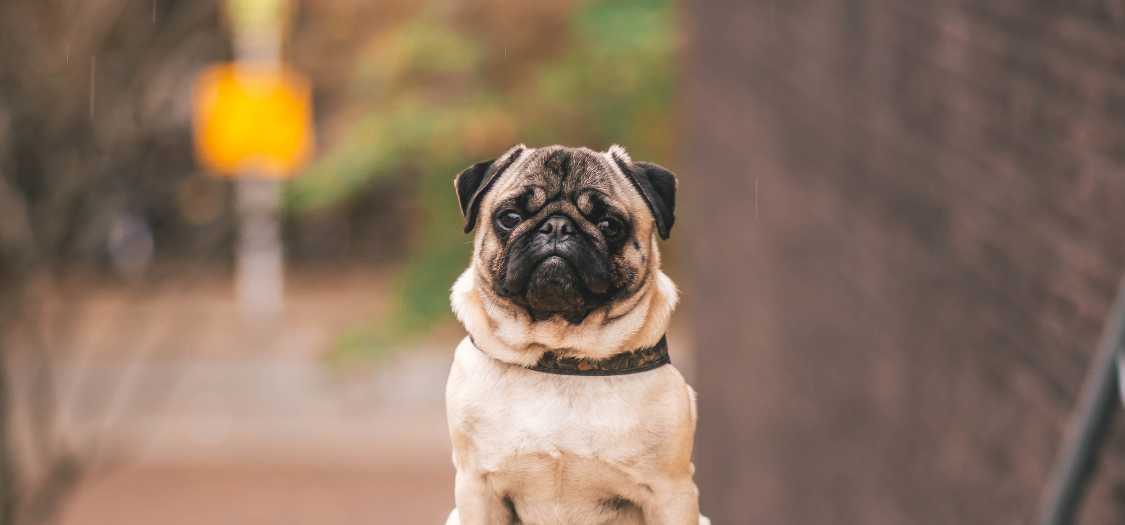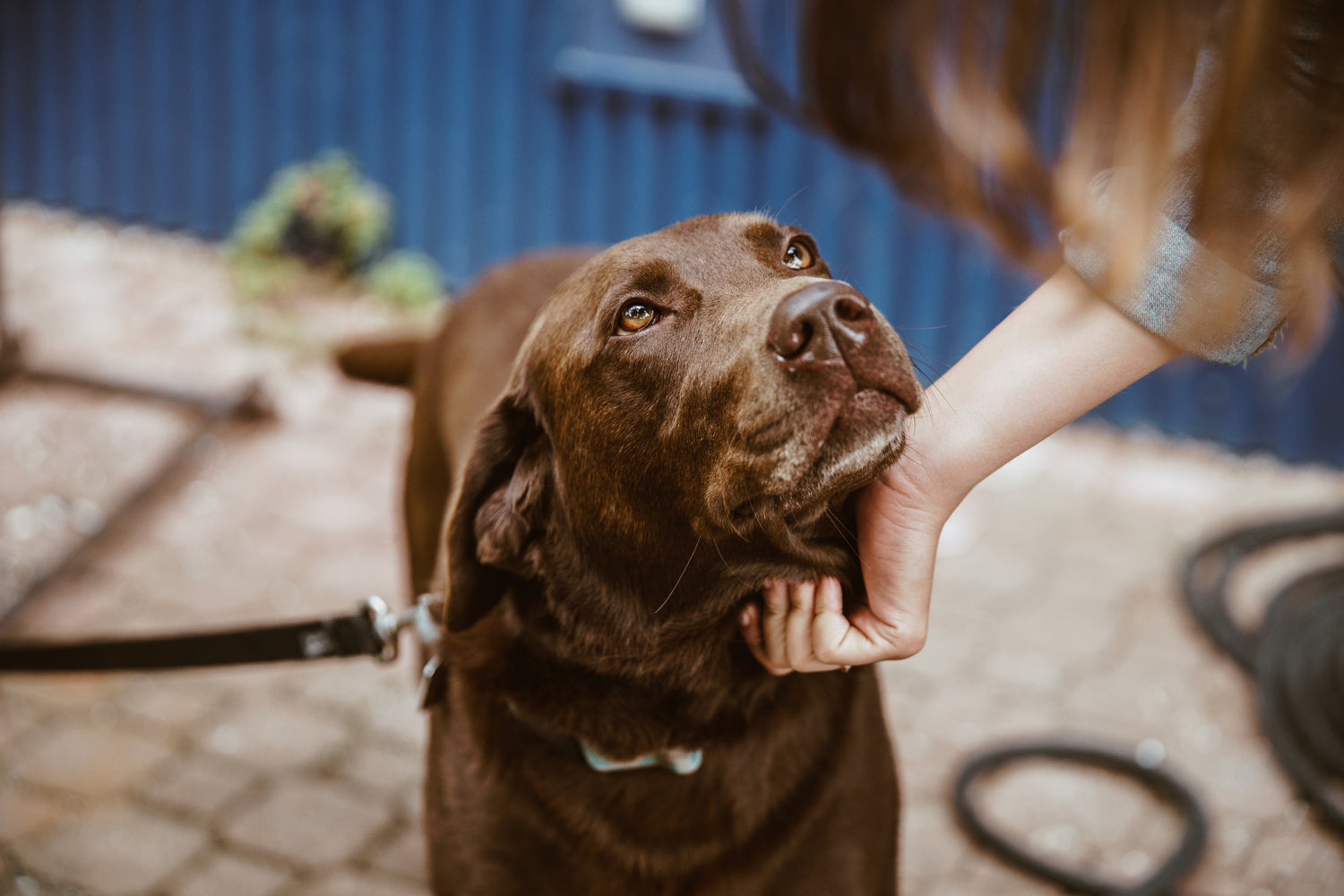My Dog has Degenerative Myelopathy
What Should I Do?

Many pugs are diagnosed with Degenerative Myelopathy, but please be warned that vets can often incorrectly diagnose your pug.
Your pug could actually have the condition Pug Myelopathy instead, so it’s worth ensuring that the diagnosis is correct. Pug Myelopathy is a relatively new, less-known condition, which can lead to misdiagnosis.
Both Degenerative Myelopathy and Pug Myelopathy are similar: both conditions affect the back legs, the back paws can curl and knuckle and both can make your dog paralysed.
The difference is that pug myelopathy doesn’t ultimately progress to complete body paralysis, unlike Degenerative Myelopathy, which sadly does. Dogs suffering from Degenerative Myelopathy have a shortened life expectancy whereas sufferers of Pug Myelopathy can often live a normal lifespan, although with rear limb paralysis (and in some cases, urinary incontinence).
The first thing to do is to get as definite a diagnosis as possible, which your vet will do by ruling out other conditions that have similar symptoms, this includes determining if your pug has Degenerative Myelopathy, Pug Myelopathy or a different neurological condition. Your vet will likely suggest X- Rays or an MRI scan for images of the spinal cord. A spinal tap (Cerebo Spinal Fluid test) might also be needed. Generally, a diagnosis of Degenerative Myelopathy is reached by ruling out all other possible neurological conditions.
Your pug may be gene tested to see whether they’re carrying copies of the mutated Degenerative Myelopathy gene. Gene testing can tell you if your pug has two copies of the mutated gene (which makes them high risk), if they have one copy of the mutated gene (which makes them a carrier) or if your dog does not have any copies of the mutated gene (clear).
Frustratingly however just because your dog has one or both copies of the mutated gene, does not necessarily mean that they are suffering from the condition, it only indicates that they have the potential to develop it.
So, while getting your pug gene tested can be helpful, it does not definitively confirm Degenerative Myelopathy, but more helps to build a picture when your vet is diagnosing your dog.
If your pug has been diagnosed with Pug Myelopathy, one of your priorities will be maintaining your dog’s mobility for as long as possible.
Even if your dog is in the early stages of the condition and still able to walk, getting them into a wheelchair can make a huge difference. At this point, rather than the wheelchair being a mobility aid, its function is more as a physical therapy tool. This is because it allows the leg and hindquarters muscles to keep activated and functional.
It is a fallacy that because your pug is using a wheelchair they will become ‘lazy’ and stop using their legs. Dog wheelchairs have the option to support, rather than take over from their back legs, meaning that your dog can still use their legs while being given the extra support and stability from the wheelchair.
Waiting until the disease progresses and your pug is struggling to walk before getting a wheelchair, runs the risk of your pug’s leg muscles becoming too weak, meaning disease progression is more rapid and your pug will become immobile much sooner. The sooner you get your dog into a wheelchair the less muscles wastage occurs and means that your dog’s quality of life is enhanced.
You can read more about pug wheelchairs here. Some owners like to use Maximus Skates with wheelchairs - they’re essentially like little roller skates for your pug - to help keep their back legs gliding along the ground.
So a wheelchair, in conjunction with physiotherapy and hydrotherapy can be very helpful in maintaining muscles and cardiovascular health in your pug.
You may also need to protect your dog’s rear paws because of any knuckling or scuffing of the skin caused by the pug myelopathy. There are boots specifically designed to protect the tops of the paws from the skin scraping caused by knuckling.
Maximus PawsUp are boots specifically designed to help correct knuckling while they’re being worn, they can make a really significant difference and we see many pugs benefit from wearing these. They can also be worn when using a wheelchair.
Degenerative Myelopathy is often accompanied by urinary incontinence. Waterproof bedding and washable incontinence pads for around the house can save a lot of work and helps maintain your pug’s hygiene.
Good weight management and a balanced diet is also key. Ensure your dog is maintaining the correct weight by checking they are receiving the appropriate nutrition for their breed, age and activities levels.
You can read more about Pug Myelopathy here - Causes, Prevention and How To Help https://zoomadog.co.uk/collections/pug-myelopathy
Read how other pug owners use a dog wheelchair to help their pug live an active life https://zoomadog.co.uk/products/dog-wheelchair-pug

We can help find the right solution for your dog
Feel free to give us a call on 01730 622544
or email us at woof@zoomadog.co.uk
Comments
Leave a comment